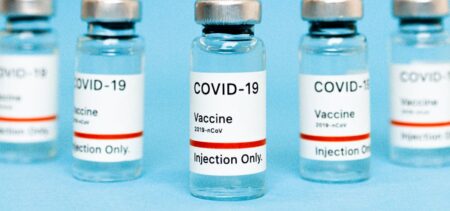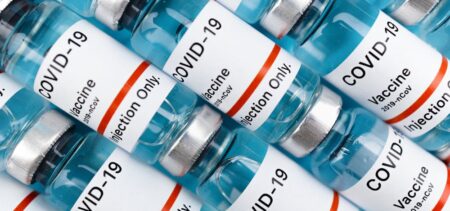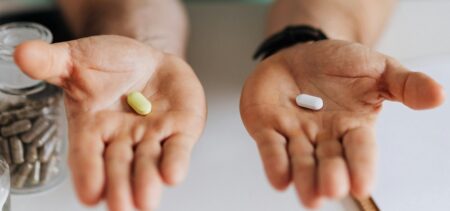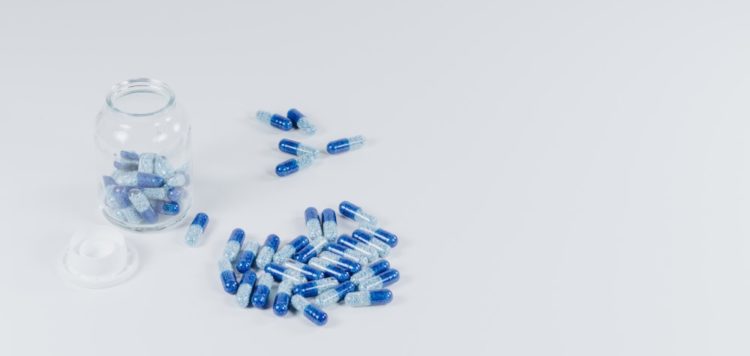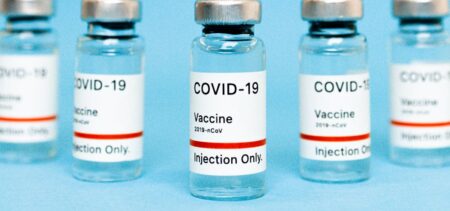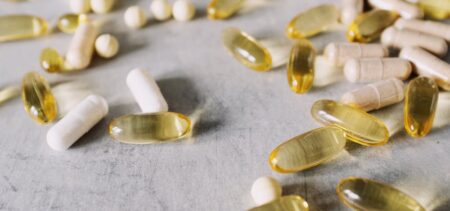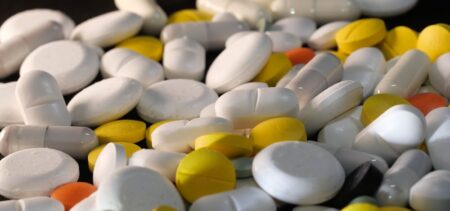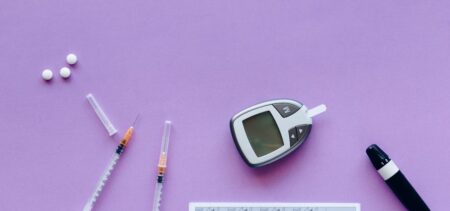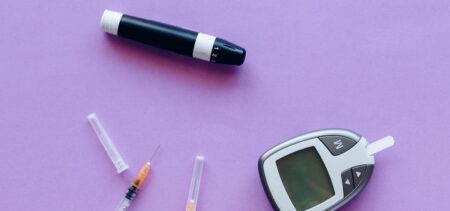The COVID-19 pandemic has reshaped industries—especially healthcare and biopharma.
While vaccines provided governments and people in the US and abroad with a new way of fighting the virus, more help is needed. As a significant percentage of the population remains unvaccinated, and new strains of the virus continue to cause outbreaks around the world, another option is needed—such as an effective antiviral treatment.
According to Reuters, a new experimental antiviral pill developed by Merck & Co. (MRK.N) could reduce the chances of dying of—or being hospitalized with—a severe form of COVID-19 by 50%. But will the new Merck pill be as effective as the vaccines, or is it destined to remain just one tool among many?
Learning from the Mistakes of the Past
In 2020, former President Donald Trump encouraged the use of hydroxychloroquine as a treatment for COVID-19, although the anti-malaria drug had not been approved as a COVID-19 treatment. In doing so, the former president contradicted the guidance provided by some of the US’s top public health agencies and officials. Although hydroxychloroquine had been previously approved to prevent and treat malaria, and chloroquine is used to treat some autoimmune diseases, both drugs would soon prove to be ineffective against COVID-19.
Another drug used to treat COVID-19, despite little or no evidence of its effectiveness, is Ivermectin, an antiparasitic that was promoted by celebrities, politicians, and physicians as a game-changer in the fight against COVID-19. Despite the lack of scientific evidence, both hydroxychloroquine and Ivermectin were used to treat patients with COVID-19. However, Food and Drug Administration (FDA) results would later show that “hydroxychloroquine and chloroquine have not been shown to be safe and effective for treating or preventing COVID-19”, while the agency did not authorize or approve Ivermectin for use in preventing or treating COVID-19 in humans or animals.
In fact, according to the FDA, taking large doses of Ivermectin is actually dangerous, as the levels of the drug might interact with other medications, and people could also overdose on the pills.
Why the New Merck Pill Might Provide Reasons for Hope
After multiple trials, a new experimental antiviral drug developed by Merck & Co. provided scientists with hope of reducing the risk of death or hospitalization for people at higher risk of contracting severe forms of COVID-19. According to clinical data analyzed by Reuters, molnupiravir could halve the chances of dying or being hospitalized for those most at risk of contracting the virus. Unlike hydroxychloroquine and Ivermectin, this pill is actually designed to introduce errors in the genetic code of the virus—and, if approved, it could become the first oral antiviral drug for COVID-19.
Maybe even more important is the fact that, according to Merck, molnupiravir is also likely to be effective against other variants of the virus, including the dominant Delta variant. This newer strain is now responsible for most cases in the US. According to the Centers for Disease Control and Prevention (CDC), the Delta variant is also more infectious than previous variants, because it’s much more transmissible—even in vaccinated individuals. Considering these facts, Merck Chief Executive Robert Davis said the new pill will change the discourse regarding how to manage the pandemic.
While the new Merck pill does provide a good reason for hope, it still needs to pass the FDA review before being considered a proper treatment in the US. For now, Merck officials are unsure how long the process will take.
The Future Looks Bright
The National Institute of Allergy and Infectious Diseases’ (NIAID) Director, Dr. Anthony Fauci, recently said that the clinical data provided by Merck represents “very good news”, although caution is advised until the FDA concludes reviewing the data. However, with a new experimental antiviral drug almost ready to use and vaccination already being a valuable weapon against the virus, the future does look brighter than it has since the start of the pandemic.







